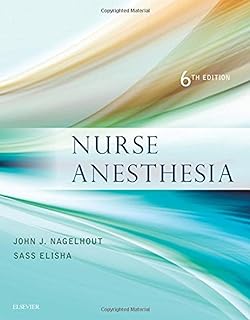5 important factors worth considering when looking for the best crna
When you’re thinking about making a big purchase, like a CRNA, there are important factors to consider that can impact your decision. Things like how well it works, how much it costs, and how reliable it is all play a role in choosing the right one for your needs. With so many choices out there, knowing these key factors can help you pick the best CRNA for you. By looking closely at these important elements, you can have a better idea of what to expect when buying a CRNA that fits your needs and preferences. This will ensure a more satisfying buying experience that meets or even exceeds your expectations.
See our guide to the best crna.
Accreditation of the program
Ensuring a Certified Registered Nurse Anesthetist (CRNA) program is properly accredited is essential. Accreditation confirms the program’s quality, including its curriculum, faculty expertise, and ability to prepare students well. Choosing a program without accreditation could waste time, resources, and harm career opportunities. With an accredited CRNA program, individuals can be confident they are receiving a reputable education that meets industry standards and gives them the skills needed to succeed in healthcare.
In addition to benefiting students, accreditation also maintains the integrity of the CRNA profession overall. A program recognized by accrediting bodies shows a dedication to excellence and improvement, which reflects positively on the reputation of CRNAs in the healthcare field. It assures employers that graduates from accredited programs have received rigorous training and follow established practice standards. Prioritizing accreditation when choosing a CRNA program is not just about personal growth, but also demonstrates a commitment to upholding the highest standards in patient care and safety.
Reputation of the program and faculty
When choosing a CRNA program, it’s important to thoroughly look into the program’s reputation and the qualifications of its faculty. The reputation of a CRNA program can tell you a lot about how good the education and training will be. You should consider things like accreditation, how well students do after graduating, and feedback from alumni to understand how well-regarded the program is in the field. A program with a good reputation can lead to better clinical opportunities and make you more credible to potential employers.
It’s also crucial to consider the faculty who will be teaching you during your time in the CRNA program. Having experienced and knowledgeable faculty members can make a big difference in the quality of education you receive. It’s important to research the backgrounds, expertise, and industry experience of the faculty to make sure they have the skills needed to effectively teach and mentor you. Faculty members with a strong reputation can enhance your learning experience, offer valuable insights, and be supportive mentors as you work towards becoming a CRNA.
Clinical practicum opportunities
When looking for hands-on training opportunities as a nurse anesthetist student, it’s important to understand how these experiences can shape your future career. Clinical practicums allow you to apply what you learn in the classroom in real medical settings. These experiences help you improve your clinical skills and learn to think critically and make quick decisions, which are crucial in the field of anesthesia. Working closely with experienced CRNAs and other healthcare professionals during practicums also gives you the chance to learn from them and build connections that can help you in your career.
The quality and variety of clinical practicum opportunities you have can have a big impact on how prepared and confident you are as a future nurse anesthetist. So, it’s important to choose a program that offers a wide range of experiences in different healthcare settings, with different types of patients and cases. These experiences will help you be ready for the challenges you’ll face in the job. Practicums aren’t just about finishing a program and getting licensed; they help shape you into a skilled, flexible, and empathetic nurse anesthetist who can provide great care in today’s ever-changing healthcare world.
Cost and financial aid options
Acquiring a degree to become a Certified Registered Nurse Anesthetist (CRNA) can be expensive and overwhelming for many students. The costs of tuition, study materials, and exam fees often discourage people from pursuing this career. However, there are various financial aid options available to help alleviate this financial burden, such as scholarships, grants, and student loans designed for healthcare professionals.
Although the initial cost of a CRNA program may seem high, it is important to consider the potential long-term benefits. Graduates often receive competitive salaries and have high demand in the healthcare field, making the investment in their education worthwhile. Some employers also provide tuition reimbursement or loan repayment programs for CRNAs, making it more feasible to pursue this career.
By taking advantage of financial aid opportunities and planning for future earning potential, individuals can pursue a fulfilling career as a CRNA without compromising their financial stability. Viewing the cost of CRNA education as an investment in professional growth can lead to a rewarding and lucrative career in anesthesia care.
Location and potential relocation requirements
When buying a Certified Registered Nurse Anesthetist (CRNA) practice, it’s important to think about the location and if you may need to move. Where a CRNA practice is located is really important for its success and for keeping both patients and healthcare professionals happy. A well-placed practice not only brings in a lot of patients, but also makes it easy for healthcare providers to get to work, creating a good work environment. Being close to hospitals, medical facilities, and schools can make a big difference in how successful a CRNA practice can be. So, looking at the location with an eye to the future can help set the practice up for long-term success in the competitive world of healthcare.
Considering moving to a new location when buying a CRNA practice should be done with a mix of practicality and looking ahead. Moving somewhere new might seem scary, especially for experienced healthcare workers, but it can offer a chance for growth and moving ahead in your career. Going to an area where there’s a lot of demand for anesthesia services or where there aren’t many services can help build up the number of clients and help CRNAs develop both personally and professionally. Seeing moving as an opportunity to expand skills and help communities in need can change how a CRNA career progresses. Ultimately, thinking of moving as a way to grow and bring new ideas can lead to a successful career in the always-changing world of healthcare.
Conclusion
In summary, Certified Registered Nurse Anesthetists (CRNAs) are essential members of the healthcare team who provide high-quality anesthesia care to patients with a combination of skill and compassion. They play a key role in delivering safe and effective anesthesia in various medical settings. CRNAs greatly impact patient outcomes and overall healthcare quality through their advanced training and teamwork. It is crucial to appreciate and assist these dedicated healthcare professionals in their commitment to improving patient care. Want more info on planet audio double din car stereos, check the best planet audio double din car stereos.


